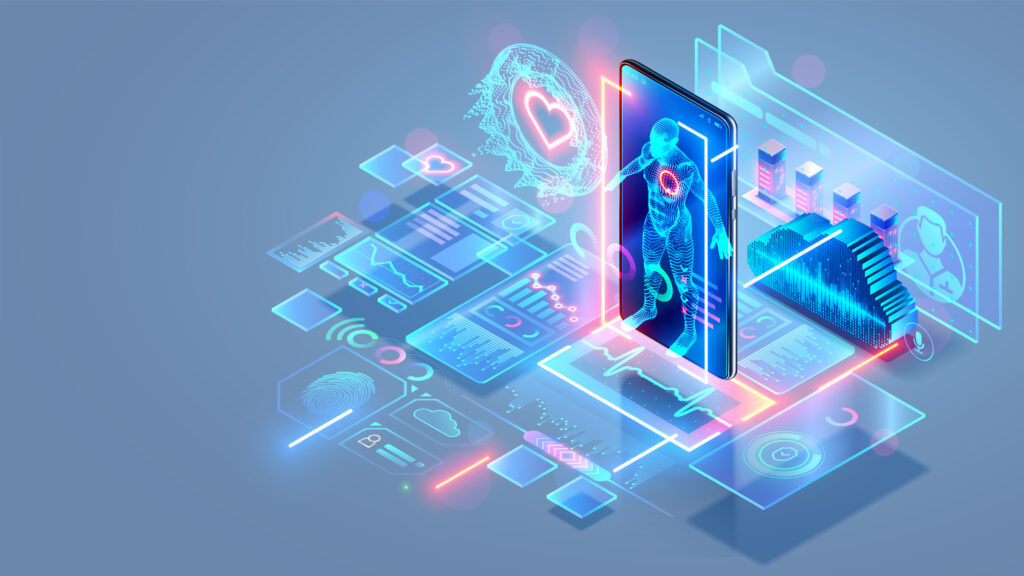A long-held belief is that life science happens in test tubes and Petri dishes, not computer systems. However, changing perceptions toward technology and software in the life sciences industry have seen rapid investments in digital transformation. Life science companies need the latest digital tools to meet patient expectations, digitize lab processes, and increase efficiencies, and the global life sciences software market could reach $18 billion by 2025.
In this article, you will learn about the current state of digital technologies in the life science sector.
What Does Technology Mean for Life Science Companies Today?

Technology solutions are becoming increasingly important for the life science sector:
- Digitization can help life science companies achieve better patient outcomes and improve healthcare services such as personalized medicine.
- Companies can access data to improve product performance. Scientists can learn more about pharmaceuticals, medical devices, biotechnology-based food and medicines, and other life science products with life sciences software.
- Scientists can solve problems and make better decisions with technologies such as life sciences software, automation, artificial intelligence, machine learning, the cloud, and the Internet of Things (IoT).
- Life sciences software with advanced data analytics allows scientists to identify patterns and trends in data sets for more insight into processes and workflows. Experts predict the life science analytics market will experience exponential CAGR growth of 12.75% from 2022-2029.
- Digital ecosystems can help fill the life science innovation gap and enhance pipeline development.
- Life sciences software development can help companies create custom software tools that meet specific business needs.
What Are 7 Technology Growth Trends in Life Science?

Deloitte has come up with seven technology growth trends that benefit life science companies investing in digital transformation:
- Data sharing: Using APIs and life science software solutions, companies can share sensitive patient data while complying with HIPAA and other data governance frameworks.
- Vertical cloud: A vertical cloud is a cloud-based computing service optimized for life science, helping companies support research, development, commercial functions, and patient engagement.
- Blockchain: Distributed ledger technologies (DLTs) allow companies to share data through a single information superhighway and enhance supply chain management.
- Automation at scale: Company-wide automation can remove manual administrative processes, allowing scientists to focus on what they do best: Study living organisms. Technologies such as artificial intelligence and machine learning can enhance automation.
- Cyber AI: Artificial intelligence can help companies manage risk across the value chain and reduce cybercrime — a growing problem in the sector.
- Physical tech stacks: Remote monitoring and virtual patient check-ins help companies conduct clinical trials in the post-COVID era.
- Quantum computing: Ten percent of life science companies are investing in quantum computing to improve the accuracy and speed of drug discovery, helping them develop new personalized medicines and interventions.
What Are the Challenges in Life Sciences?

Digital transformation can help life science companies overcome these industry challenges:
- Cost pressures from healthcare payers and new competitors are impacting the bottom line of life science companies.
- Tighter profit margins caused by increased competition from generic products.
- Ever-increasing regulations make it difficult for scientists to develop new products and get those products to market.
- Siloed and legacy computer systems hinder data analysis.
- Inflation and other economic conditions are increasing labor, material, and product costs.
How Do You Protect Health Data and Maintain Compliance?

Life science companies need to adhere to data governance legislation like HIPAA—or face expensive penalties for non-compliance. Here are some ways digital technologies can help companies safeguard health data:
- Creating secure and encrypted data channels by investing in a VPN site-to-site setup.
- Developing a multi-layer security network that includes a firewall, virtual LAN, and delimiter zone.
- Using physical data center security to protect against damage to machines and systems.
- Developing authentication password policies that protect users and safeguard sensitive data.
- Working with an ISO 9000-certified provider.
KMS Healthcare helps life science companies achieve research and development objectives while ensuring accuracy and security. Learn more about how KMS protects health data and maintains compliance in the life science sector.
What Types of Testing Does Life Science Technology Demand?

Life science technology requires the following types of testing to ensure it safeguards data and benefits end users:
- Performance testing: Understand how your platform performs under typical conditions and discover the stability and responsiveness of systems under standard workloads.
- Load testing: Understand how much traffic your platform can handle in high-traffic periods.
- Stress testing: See how your platform performs under extreme loads.
Software development partners can help life science companies implement these testing types to find and eliminate failure points and predict how many servers are required to manage increased traffic. By automating processes, you can discover testing and performance bottlenecks that prevent the execution of day-to-day tasks
How to Reimagine the Role of Technology?

Life science companies can no longer rely on legacy systems and manual processes. McKinsey & Company says companies should rethink technology’s role in the sector by:
- Creating a business strategy with digital transformation at its core. A bold business-led vision incorporating the latest technologies can result in more successful productivity outcomes for life science organizations.
- Integrating technology management into life science workflows by establishing a product- and platform-centric technology organization.
- Developing design-based products that improve the user experience and benefit customers.
- Prioritizing agility as a core way of working by assembling joint teams of technology and business members.
- Ensuring ‘automated platform thinking’ by prioritizing cloud technologies.
- Placing engineers and ‘doers’ at the core of a life science organization. These professionals can help companies achieve their digital transformation goals.
- Working with a diverse group of external partners while making sure critical technology roles remain in-house.
How Can Life Science Software Companies Help You Excel?
Working with a technology partner like KMS can help life science companies improve digital transformation by allowing you to:
- Simplify complex processes and workflows for a clinical trial.
- Design and deploy research studies that comply with industry standards in days, not months.
- Manage collaborative research across multiple clinical trials and sites.
- Capture and manage patient, clinician, EMR/EHR, and device data in one centralized location.
- Comply with 21 CFR Part 11, GCP, GDPR, HIPAA, and other regulations.
- Recruit trial participants more effectively and improve patient visit satisfaction.
- Remove manual processes by moving to paperless clinical trial management.
- Automate billing and cost management.
- Develop reliable RPM and ePRo solutions.
- Improve productivity through life science software development.
- Get more value from life sciences software.

Need help with digital transformation? Choose KMS Healthcare as your life sciences software partner. A team of experienced developers can revolutionize research, testing, integration, and delivery. Contact KMS to learn more.

